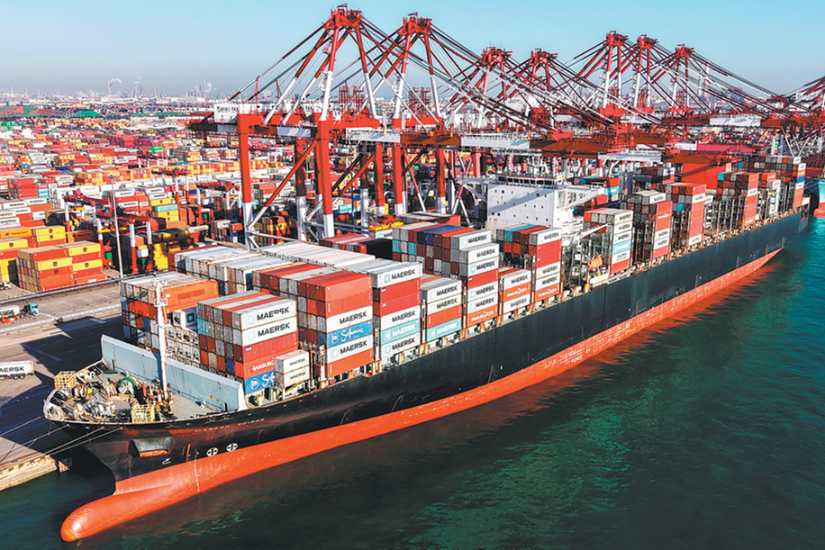New capital drought threatens growth


Continued lack of IPO proceeds and private equity input will damage China's economic reform
China's private sector is experiencing an unprecedented shortage of new investment capital. The two predominant flows of growth capital for China's private sector - initial public offering proceeds and new investments by more than 1,000 private equity firms active in China - have both dried up.
As recently as 2011, IPOs and PE firms pumped $20 billion (15 billion euros) to $30 billion a year of new capital into private companies in China. In the past nine months, that figure has dropped to almost zero.
Even when IPOs cautiously resume, the flow of capital to private companies will likely remain at levels far below recent years. If so, it will quite possibly damage the plans of the Chinese government, as well as the hopes of many of its citizens, to "rebalance" the Chinese economy away from reliance on state-owned enterprises and toward one oriented more toward meeting the needs and fulfilling the hopes of the country's 1.3 billion people.
All companies need capital to grow. This is especially true among China's private sector businesses. They operate in a particularly fast-growing market, where both opportunities and competitors are plentiful. Private sector companies are also the main source of new jobs in China, and an increasingly vital contributor to overall GDP growth.
Over the past decade, these Chinese companies became perhaps the world's hottest investment targets. China's PE industry, both dollar and yuan, grew from basically zero to become the second-largest in the world. PE firms raised more than $200 billion to invest in China and then put money in more than 10,000 Chinese companies. At the same time, Hong Kong, New York and China each year vied for the title of world's largest IPO market, with most of the deals being new offerings by Chinese companies.

China still has more of the world's best, most talented private sector entrepreneurs than any country. Investing in their companies remains one of the best ways to make money anywhere. But, for the moment, only a few are willing to try.
This problem is at its core a market failure caused by the loss of investor confidence inside and outside China in the true financial situation of its private sector companies. Questions are raised about financial fraud inside Chinese private companies. Though the concerns are real, the problems are of limited scope, often technical, and the market's reaction has been severely overblown.
The accounting issues first arose in the US, with the uncovering of several cases of phony accounts among Chinese private companies quoted there. The contagion of doubt spread first to other Chinese private sector companies already listed or seeking to IPO in the US, then to those waiting for an IPO in Hong Kong, until recently the largest market in the world for new IPOs.
Finally, from the summer of 2012, the stock markets on the Chinese mainland began shutting down new IPOs. When the IPOs stopped, most PE firms stopped investing.
The PE firms are sitting on more than $40 billion in capital that they say is for investing in China's fast-growing private sector companies. But that money is now idle in bank accounts, not going to help good companies become better.
The longer China's private sector goes without access to major new capital, the more unbalanced the Chinese economy may become.
I first came to China in 1981. During the past 32 years, China's private sector has gone from non-existent to producing more than half of the country's GDP. The private sector produces just about everything ordinary Chinese rely on to better the quality of their lives - not just more and better-paying jobs, but also new housing, shops, clothing, restaurants, tutoring for their children and a vibrant Internet and e-commerce industry.
As these private companies have gone from small mom-and-pops to some giant businesses, including virtually all China's leading domestic consumer brands, the dependence on IPO proceeds and PE money has become almost absolute. So, the dramatic slowdown in the flow of capital to private companies will have an impact on these businesses, their customers and ultimately China's GDP.
At this point, the only outside financing available for Chinese private companies are bank loans, which remain difficult and costly to arrange. The banking system is, however, fixated on lending to state-owned enterprises. That leaves only the so-called "shadow banking system", where loan sharks provide short-term money at interest rates of at least 25 percent per year. But, recently, even many loan sharks have fled the marketplace.
The Chinese government has created a set of policies that allowed the private sector to flourish. It also encouraged the flow of capital from the PE industry and IPOs. The plan had been to rely on the private economy to shoulder much of the burden of restructuring the Chinese economy away from SOEs and exports, while creating new jobs and supplying the goods consumers most want.
But that planned rebalancing cannot happen without money, without new capital for the private sector. Instead of a rebalance, China's economy is possibly headed toward a more lopsided reliance on the state sector and big-ticket government spending projects.
The author is founder and chairman of China First Capital, a China-focused investment banking and advisory firm. The views do not necessarily reflect those of China Daily.
(China Daily Africa Weekly 06/21/2013 page11)
Today's Top News
- ROK leader's visit to help boost bilateral ties
- China's new plan, world's new opportunities
- Expert: US actions, words don't match
- China's diplomacy to blaze new trails
- Visits point way to better future for all
- PLA tests joint combat strength for second day






























